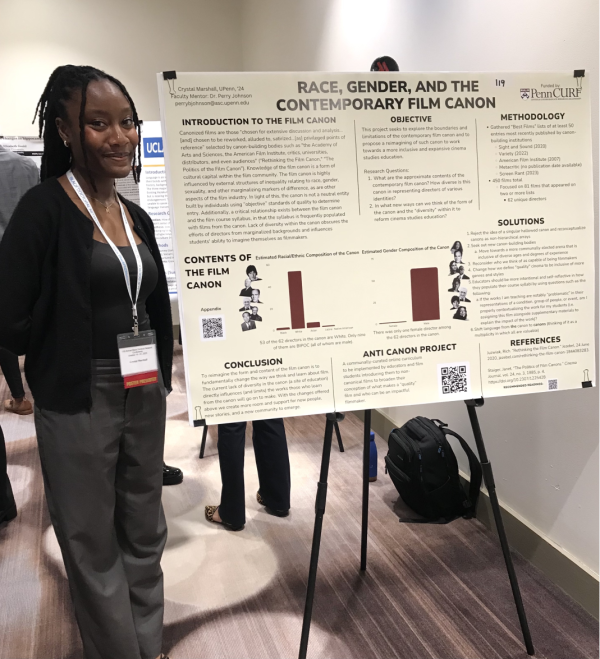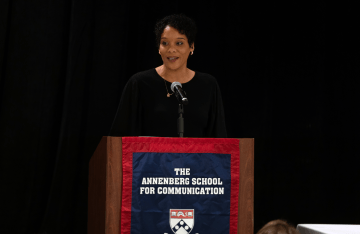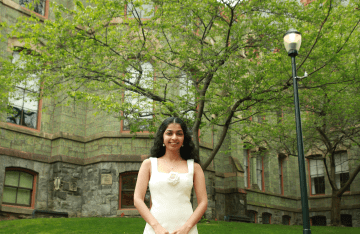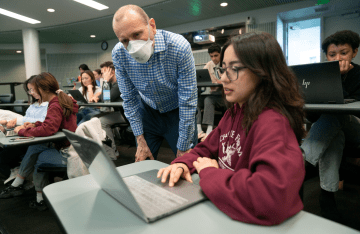Communication Major Crystal Marshall (C’24) Wins Thouron Award
The award will allow Marshall to study Film Programming and Curating at the University of London, Birbeck.

The University of Pennsylvania recently announced the 2024 recipients of the Thouron Award, including Communication major Crystal Marshall (C’24), a senior from Miami Gardens, Florida.
A graduate exchange program between the United Kingdom and Penn, the Thouron Award provides funding to outstanding Penn students planning to attend graduate school in the U.K. and to British students planning to study at Penn.

Thanks to the award, Marshall will study Film Programming and Curating at the University of London, Birbeck, beginning this Fall.
When Marshall first arrived at Penn, she thought she’d major in sociology, but after taking several Communication courses at Annenberg, she changed her mind.
“I always had a lingering interest in film and television and media generally,” she says, “and I ended up finding that Communication, at least the way it is structured here at Penn, felt like a cross between sociology and studies of media. The major felt like a natural fit after that.”
Marshall was inspired to explore media curation in particular after taking a Communication course taught by filmmaker and former Annenberg postdoctoral fellow, Chaz Antoine Barracks — “Black Joy, Aesthetics and Critical Media Making.”
“For my final project, I created a digital archive of TV shows and movies from 1990 to 2009 that center on depictions of Black life,” she says. “In the process, I realized that I was really interested in curation — in asking how we choose media to share and what happens when we decide not to share certain pieces of media.”
During an independent study, Marshall worked with Perry B. Johnson, postdoctoral fellow at the Center for Media at Risk and the Annenberg Center for Collaborative Communication, to create “the anti-canon project,” an online curriculum for film studies professors and students that includes films not usually shown in Film 101 classes.
“Creating the anti-canon is when I really started to sharpen my studies in curation and film,” Marshall says. “In looking at film syllabi, I saw that women and people of color are missing from the greater film canon and I realized you have to constantly revive a work in order for it to develop a legacy and stay alive in the minds of generations to come.”

After Marshall decided she wanted to pursue graduate school, she applied to the University of London, Birbeck because of their unique M.A. program.
“I found that most master's programs for film in the U.S. are either very much practice heavy or entirely focused on history and theory. I wanted something in the middle. Birbeck’s program had that,” she says. “I’m excited to be in the U.K. because not only can I visit the many film festivals there, but I also have easy access to festivals in Europe. I’m interested in the ways that major European film festivals purport themselves as beacons of quality, and I’m curious as to what tangible impact their curational choices have on the film community.”
She is getting a head start on participating in real life festivals as the co-director of the Bifocal Film Festival, the first student-led film festival at Penn.
“The entire process of being part of putting on the festival has been really exciting,” she says. “I'm really looking forward to the day that student filmmakers will be able to see their film on screen with other students in the room.”



